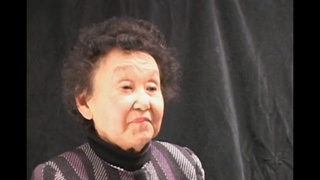Interviews
Camp stories impact on her career
When I was growing up I never heard about it. Back in the 50s and 60s it was something to be ashamed of. And, but it’s interesting because in church all the other Nisei who had been in camp, they would do like skits and things where they would have ‘Topaz’ on the back and they really made it sound to to the children that it really was not a bad thing. And, we were just fine, and we were with our friends there, and it was okay and it wasn’t until really much later that my parents opened up and talked about what a horrible experience it was.
So, even though we didn’t hear about it when I was really little, as we got got older and especially as the Asian American awareness movement started, and then we started to hear about the experience and it was just amazing, to me, as a young woman to think about having my parents just told you’re leaving, you can carry a duffle bag with your things in it, and you’re gonna go to some godforsaken place in the desert. And it has sort of a affected the way that I look at life, the way I look at government, and the way that I look at the law and how it is as a judge, now, being a Japanese American judge, to me means this will never happen again to our people, and it should mean that it won’t happen to anybody else either. I gotta-- wipe that [tear] away…
Date: July 11, 2019
Location: California, US
Interviewer: Kayla Tanaka
Contributed by: Watase Media Arts Center, Japanese American National Museum; Japanese American Bar Association








